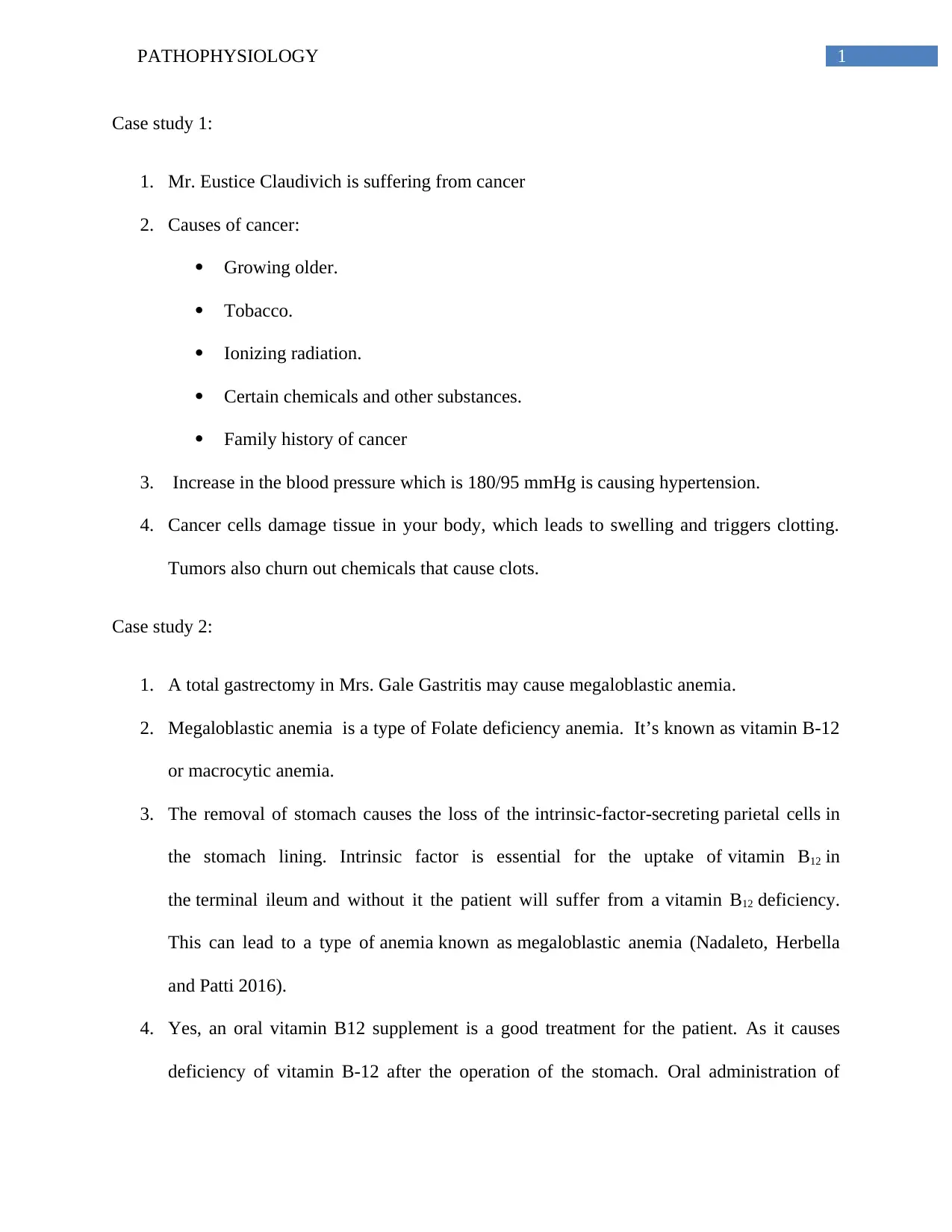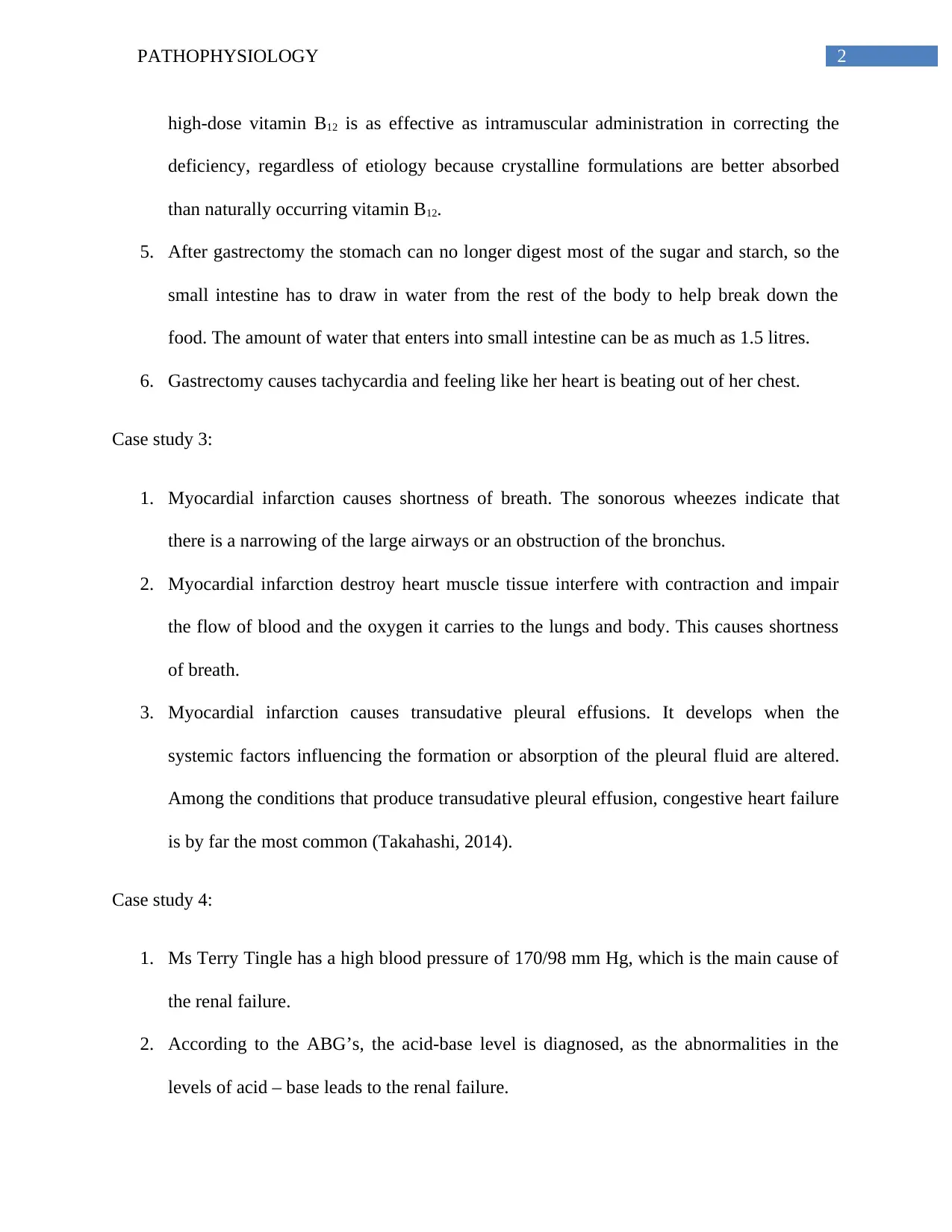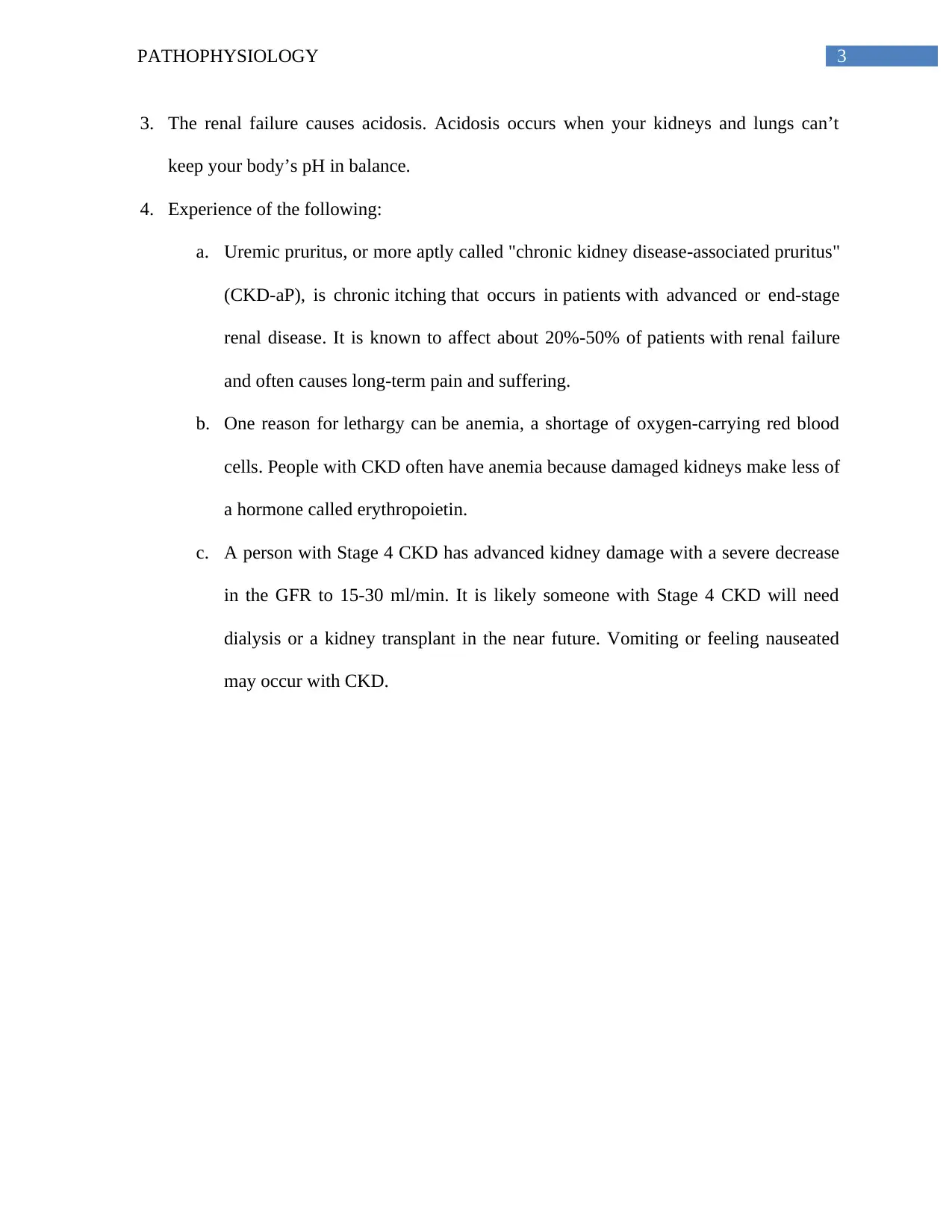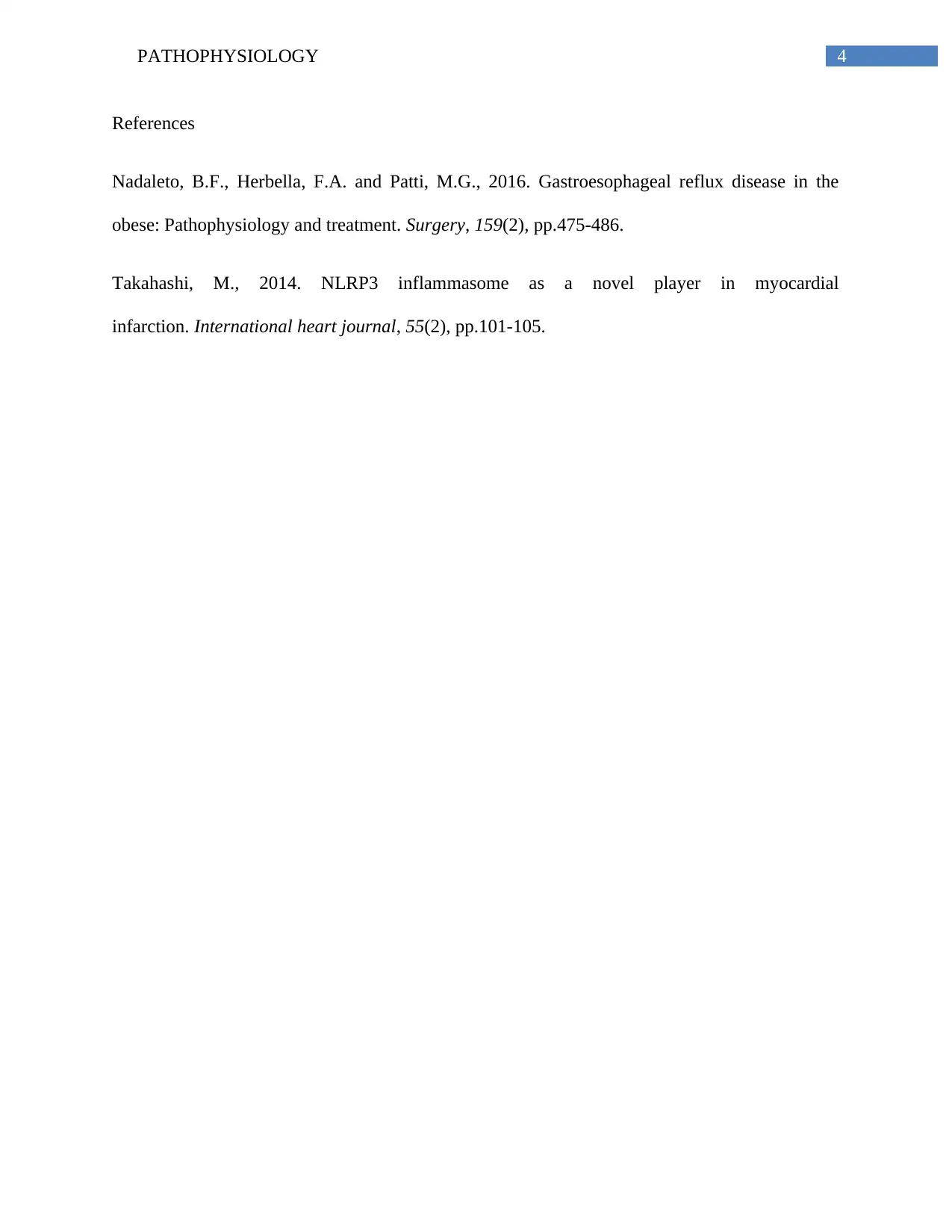Pathophysiology Case Studies: Cancer, Hypertension, Anemia, MI
VerifiedAdded on 2020/04/15
|5
|721
|131
Case Study
AI Summary
This document provides a comprehensive analysis of four distinct pathophysiology case studies. The first case examines Mr. Eustice Claudivich's cancer, detailing its causes such as aging, tobacco use, radiation, chemicals, and family history, along with the resultant hypertension. The second case focuses on Mrs. Gale, who underwent a total gastrectomy, leading to megaloblastic anemia due to vitamin B12 deficiency. The treatment and physiological effects of the surgery, including tachycardia, are discussed. The third case explores the impact of myocardial infarction (MI) on shortness of breath and the development of transudative pleural effusions. The final case presents Ms. Terry Tingle's renal failure, caused by hypertension and acid-base level abnormalities, exploring the symptoms of uremic pruritus, lethargy due to anemia, and the progression to Stage 4 CKD, potentially requiring dialysis or a kidney transplant, and also discusses the nausea and vomiting that may occur. The document references relevant medical literature to support its findings.
1 out of 5






![[object Object]](/_next/static/media/star-bottom.7253800d.svg)